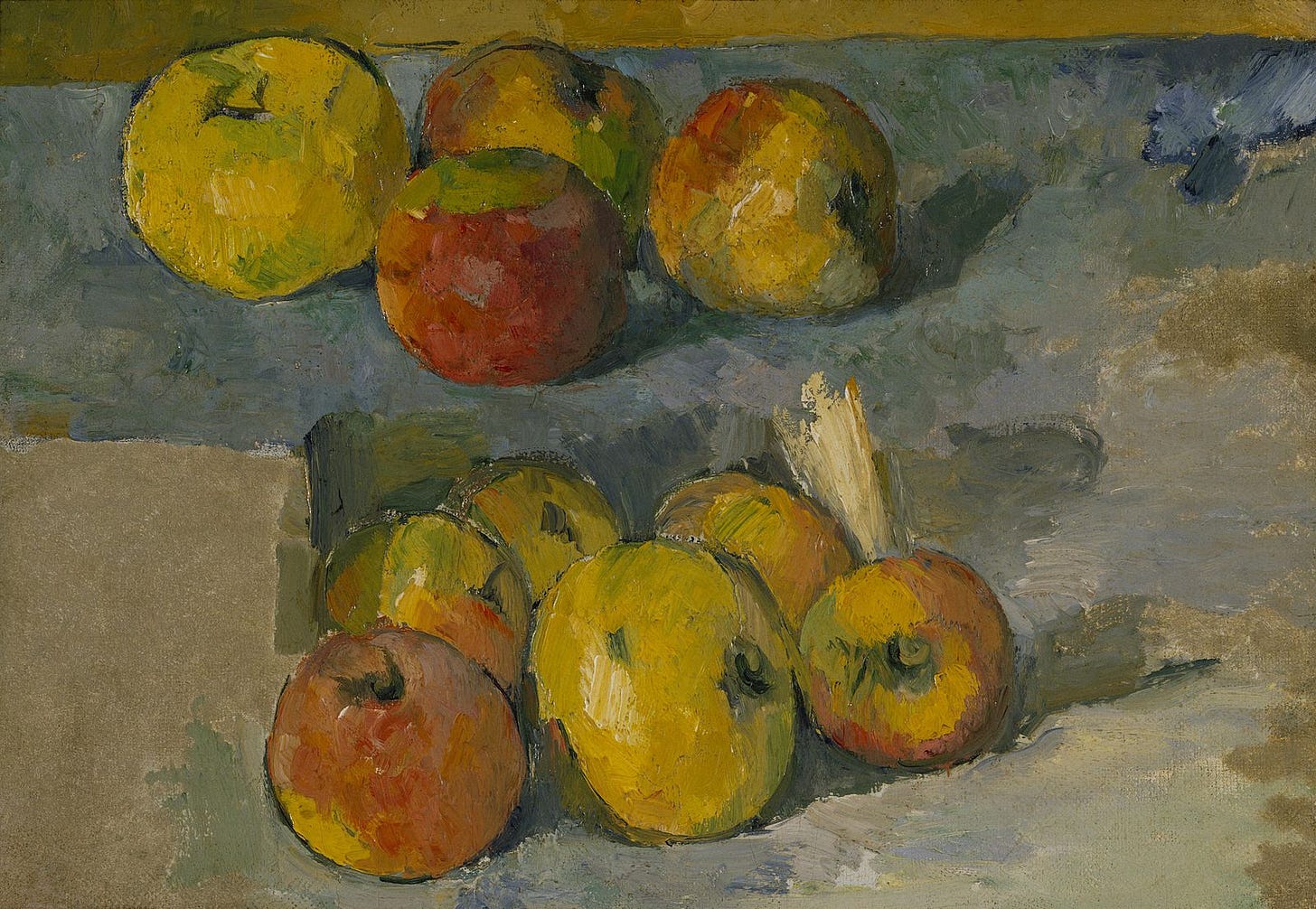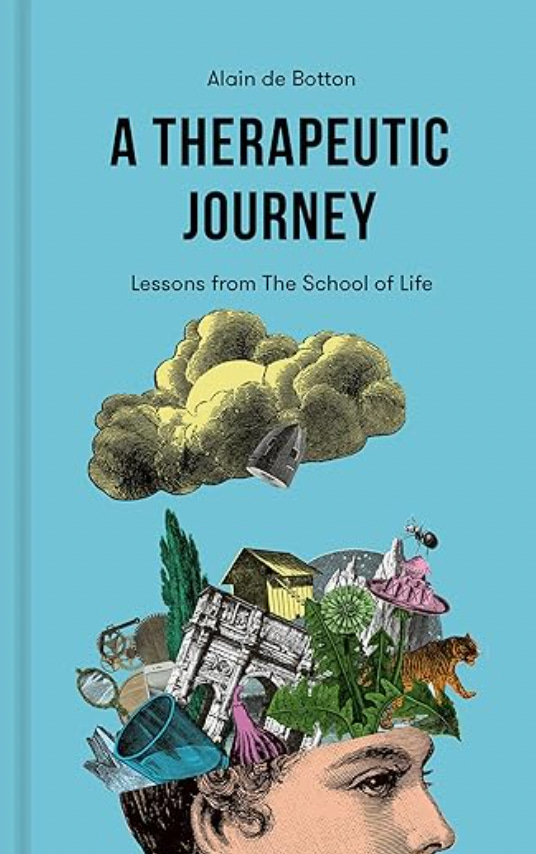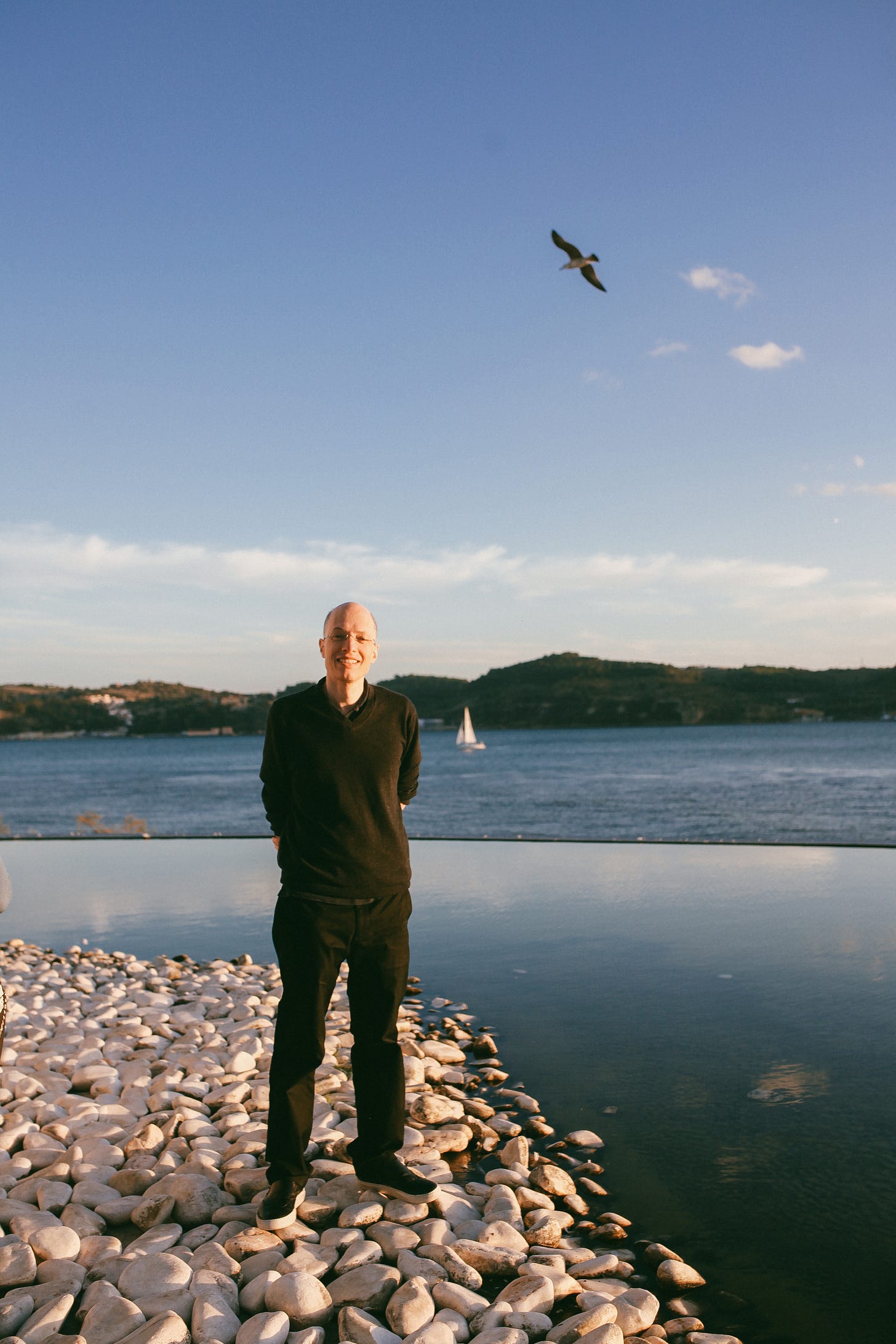How to Lengthen Your Life
An excerpt of Alain de Botton's "A Therapeutic Journey: Lessons from the School of Life" PLUS an open thread about how we make the most of our limited time on earth. How do YOU slow time down?
Readers,
Today I’ve got a hybrid post for you: an essay excerpted from pop-philosophy author Alain de Botton’s new book, A Therapeutic Journey: Lessons from the School of Life—about the strange, slippery nature of time, and how to make the most of it—crossed with an open thread in which I invite you to tell me in the comments what you do to savor your limited time here on earth—how you make it last, or feel like it’s lasting.
I wish I could tell you that I have some tried and true approach to making time more elastic, to s l o w i n g i t d o w n. I’ve always felt as if I have an unusual relationship to the fourth dimension. There’s the whole matter of not being sure how old I am, and always hitting milestones too early or too late.
Also, in the same way that while driving I find it (increasingly) difficult to determine which lights on the road are close and which are far, in my mind I sometimes have difficulty determining which memories are from long ago, and which are more recent. I have something of a photographic memory, which at 58 means there are lots of images and scenes floating around my noggin, some of them cropping up out of nowhere without clear coordinates indicating when and where they’re from.
But it turns out that, at least according to de Botton, time is just a weird dimension, not only for me, but for all of us. I like his suggestions for getting the most out of it. (No spoilers—I’ll let you read on, below.)
How about you? How do you make precious moments, and even more mundane ones, stretch out? How do you make time slow down so you feel as if there’s more of it? Tell me in the comments.
-Sari
This essay is Excerpted from A Therapeutic Journey: Lessons from the School of Life, by Alain de Botton, published by The School of Life, October 2023.
Alain de Botton’s prolific body of work has helped bring accessible philosophy to millions of people through his bestselling books,including How Proust Can Change Your Life and The Consolations of Philosophy. De Botton has a gift for looking at the great questions of human existence--love, friendship, work, travel, home--in a way that is intellectually rigorous, therapeutic, amusing and always highly readable.
How to Lengthen Your Life
By Alain de Botton
The normal way we set about trying to extend our lives is by striving to add more years to them—usually by eating more couscous and broccoli, going to bed early, and running in the rain. But this approach may turn out to be quixotic, not only because Death can’t reliably be warded off with kale, but at a deeper level because the best way to lengthen a life is not by attempting to stick more years onto its tail.
One of the most basic facts about time is that, even though we insist on measuring it as if it were an objective unit, it doesn’t, in all conditions, seem to be moving at the same pace. Five minutes can feel like an hour; ten hours can feel like five minutes. A decade may pass like two years; two years may acquire the weight of half a century. And so on.
In other words, our subjective experience of time bears precious little relation to the way we like to measure it on a clock. Time moves more or less slowly according to the vagaries of the human mind: it may fly or it may drag; it may evaporate into airy nothing or achieve enduring density.
If the goal is to have a longer life, whatever the dieticians may urge, it would seem that the priority should be not to add raw increments of time but to ensure that whatever years remain feel appropriately substantial. The aim should be to densify time rather than to try to extract one or two more years from the grip of Death.
Our subjective experience of time bears precious little relation to the way we like to measure it on a clock. Time moves more or less slowly according to the vagaries of the human mind: it may fly or it may drag; it may evaporate into airy nothing or achieve enduring density.
Why, then, does time have such different speeds, moving at certain points bewilderingly fast, at others with intricate moderation? The clue is to be found in childhood. The first ten years almost invariably feel longer than any other decade we have on earth. The teens are a little faster but still crawl. Yet by our forties, time will have started to trot; and by our sixties, it will be unfolding at a bewildering gallop.
The difference in pace is not mysterious but has to do with novelty.
The more our days are filled with new, unpredictable, and challenging experiences, the longer they will feel. And, conversely, the more one day is exactly like another, the faster it will pass by in a blur. Childhood ends up feeling so long because it is the cauldron of novelty; because its most ordinary days are packed with extraordinary discoveries and sensations. These can be as apparently minor yet as significant as the first time we explore the zip on a cardigan or hold our nose under water, the first time we look at the sun through the cotton of a beach towel or dig our fingers into the putty holding a window in its frame. Dense as it is with stimuli, the first decade can feel a thousand years long.
By middle age, things can be counted upon to have grown a lot more familiar. We may have flown around the world a few times. We no longer get excited by the idea of eating a pineapple, owning a car, or flicking a light switch. We know about relationships, earning money, and telling others what to do. And as a result, time runs away from us without mercy.
One solution often suggested at this point is that we should put all our efforts into discovering fresh sources of novelty. We need to become explorers and adventurers. We must go to Machu Picchu or Angkor Wat, Astana or Montevideo; we need to find a way to swim with dolphins or order a thirteen-course meal at a world-famous restaurant in downtown Lima. That will finally slow down the cruel gallop of time.
But this is to labor under an unfair, expensive, and ultimately impractical notion of novelty: that it must involve seeing new things, when in fact it should really involve seeing familiar things with new eyes. We may by middle age certainly have seen a great many things in our neighborhoods, but we are—fortunately for us—unlikely to have properly noticed most of them. We have probably taken a few cursory glances at the miracles of existence that lie to hand and assumed, quite unjustly, that we know all there is to know about them. We’ve imagined we understand the city we live in, the people we interact with, and, more or less, the point of it all.
The more our days are filled with new, unpredictable, and challenging experiences, the longer they will feel. And, conversely, the more one day is exactly like another, the faster it will pass by in a blur.
But of course we have barely scratched the surface. We have grown bored of a world we haven’t begun to study properly. And that, among other things, is why time is racing by.
The pioneers at making life feel longer in the way that counts are not dieticians but artists. At its best, art is a tool that reminds us of how little we have fathomed and noticed. It reintroduces us to ordinary things and reopens our eyes to a latent beauty and interest in precisely those areas we had ceased to bother with. It helps us to recover some of the manic sensitivity we had as newborns. Think of Cézanne looking closely at apples, as if he had never seen one before, and nudging us to do likewise.
We don’t need to make art in order to learn the most valuable lesson of artists, which is about noticing properly, living with our eyes open and thereby, along the way, savoring time. Without any intention to create something that could be put in a gallery, we could—as part of a goal of living more deliberately—take a walk in an unfamiliar part of town, ask an old friend about a side of their life we’d never dared probe, lie on our back in the garden and look up at the stars or hold our partner in a way we never tried before. It takes a rabid lack of imagination to think we have to go to Machu Picchu to find something new to perceive.
In Fyodor Dostoevsky’s novel The Idiot, a prisoner has suddenly been condemned to death and been told he has only a few minutes left to live. “What if I were not to die!” he exclaims. “What if life were given back to me—what infinity! . . . I’d turn each minute into a whole age . . .” Faced with losing his life, the poor wretch recognizes that every minute could be turned into aeons of time, with sufficient imagination and appreciation.
We don’t need to add years; we need to densify the time we have left by ensuring that every day is lived consciously—and we can do this via a maneuver as simple as it is momentous: by starting to notice all that we have as yet only seen.
It is sensible enough to try to live longer lives. But we are working with a false notion of what long really means. We might live to be a thousand years old and still complain that it had all rushed by too fast. We should be aiming to lead lives that feel long because we manage to imbue them with the right sort of open-hearted appreciation and unsnobbish receptivity, the kind that five-year-olds know naturally how to bring to bear. We need to pause and look at one another’s faces, study the sky, wonder at the eddies and colors of the river, and dare to ask the kinds of questions that open others’ souls. We don’t need to add years; we need to densify the time we have left by ensuring that every day is lived consciously—and we can do this via a maneuver as simple as it is momentous: by starting to notice all that we have as yet only seen.





My over fifteen-year-old dog, Betty, passed away in September. I knew at the beginning of summer that we would be lucky if she made it all the way through June, July and August. She was my four-legged-soulmate and I wanted to hang on to every second I had with her. She was a beach dog just as I am a beach person. During her frisky years we'd go to the beach and it was a fetch-fest with Betty hurling herself into the ocean to retrieve her ball and dashing around in the sand demanding I throw it again. When her arthritis caught up to her as she aged we put the ball aside and took short slow strolls stopping frequently to smell seaweed or other dogs or whatever (usually disgusting thing) had washed up on the shore. This summer she could manage to walk down to the shores edge, lay down facing the breeze and just let the smells wash over her with her eyes closed and me giving her a little massage down her spine. And this is how we slowed down time or, at least, this is how we were able to appreciate each moment. So even though Betty is no longer within my sight, she is forevermore within my heart still teaching me to notice and take my time and enjoy all the moments.
I looooopve Alaind de Botton! My advice to "densify time" is this: mono-task. Focus on one thing at a time. Tell that to-do list, "I appreciate the reminder, but you'll have to wait. Right now, in this moment, I am folding my underwear." 😉